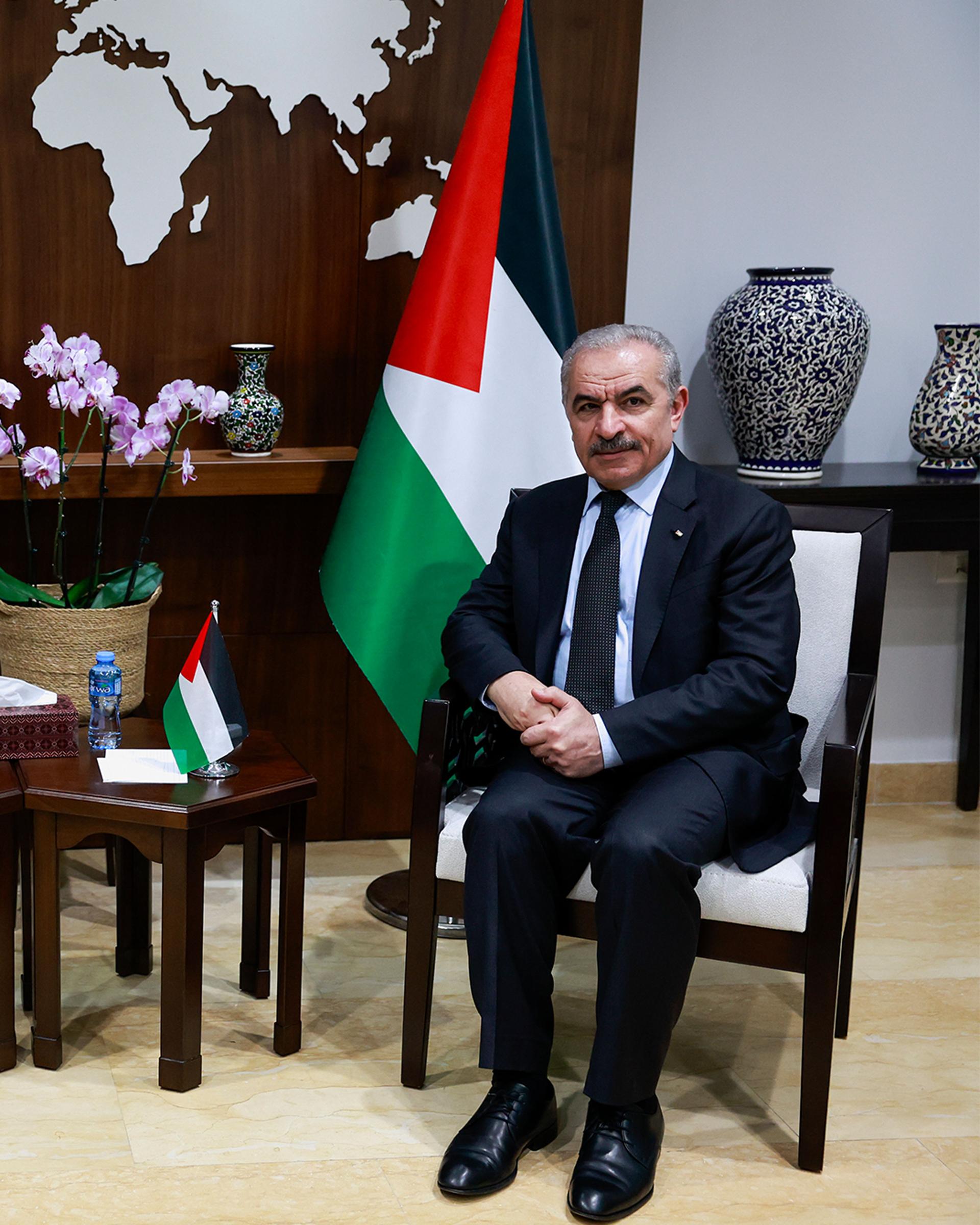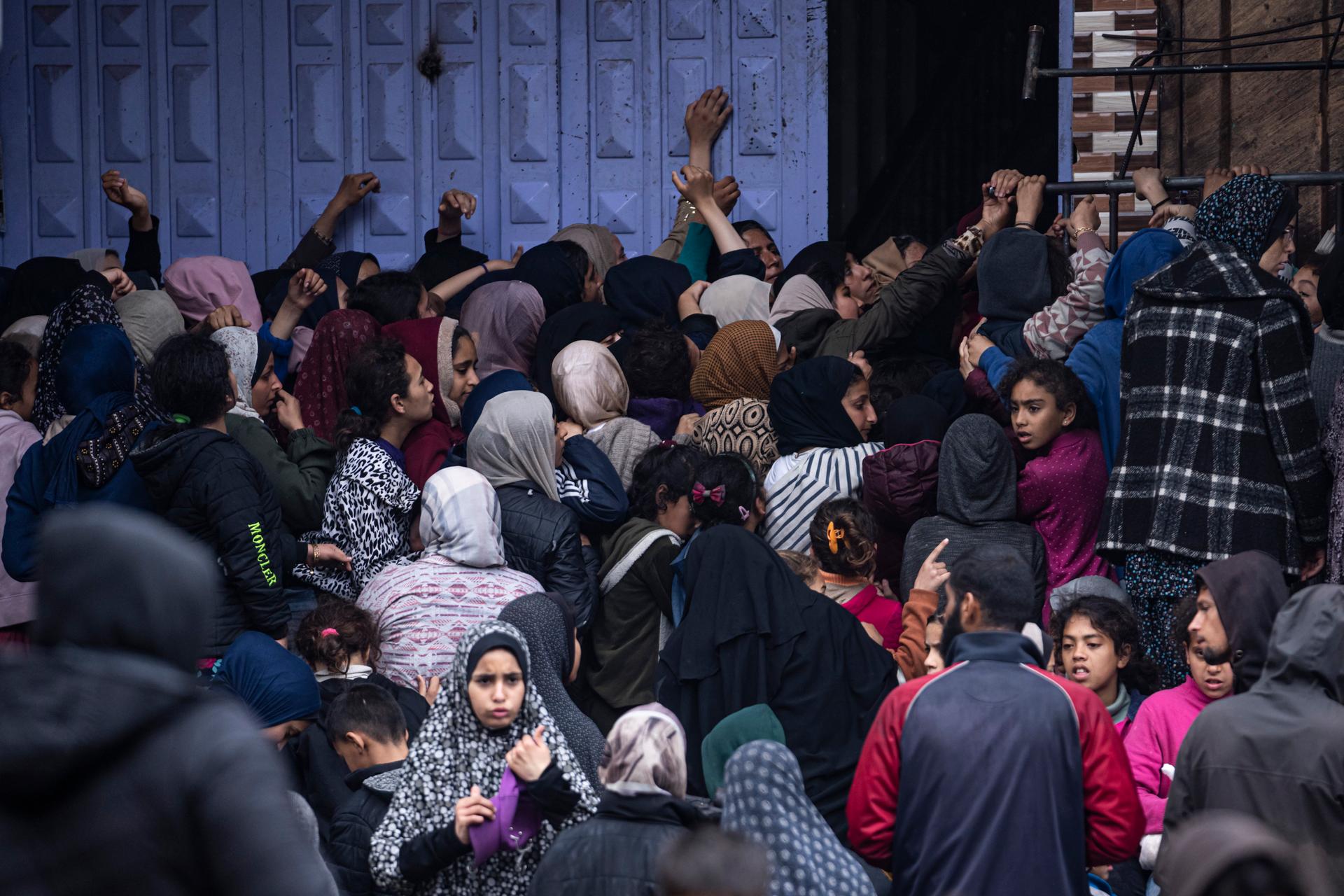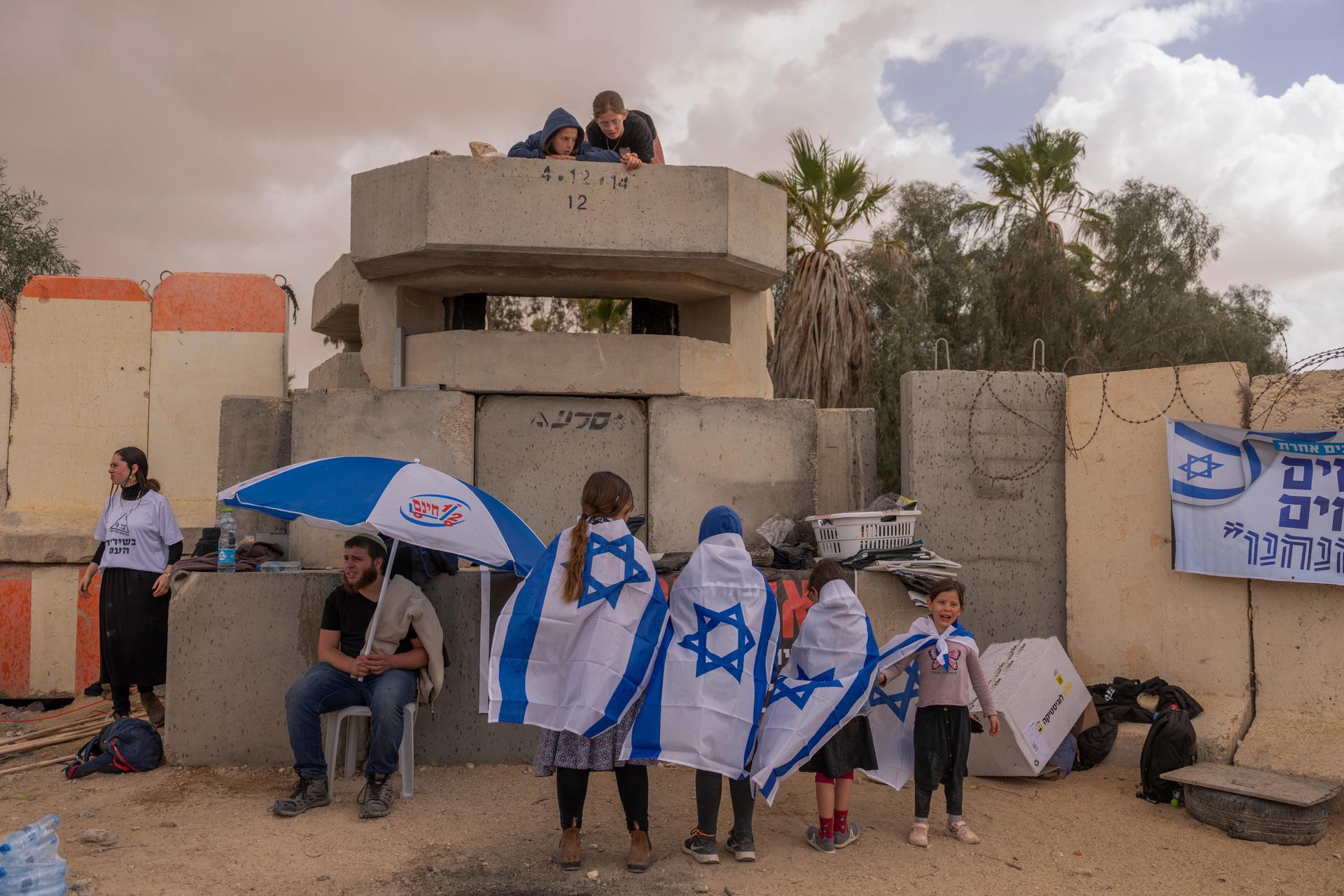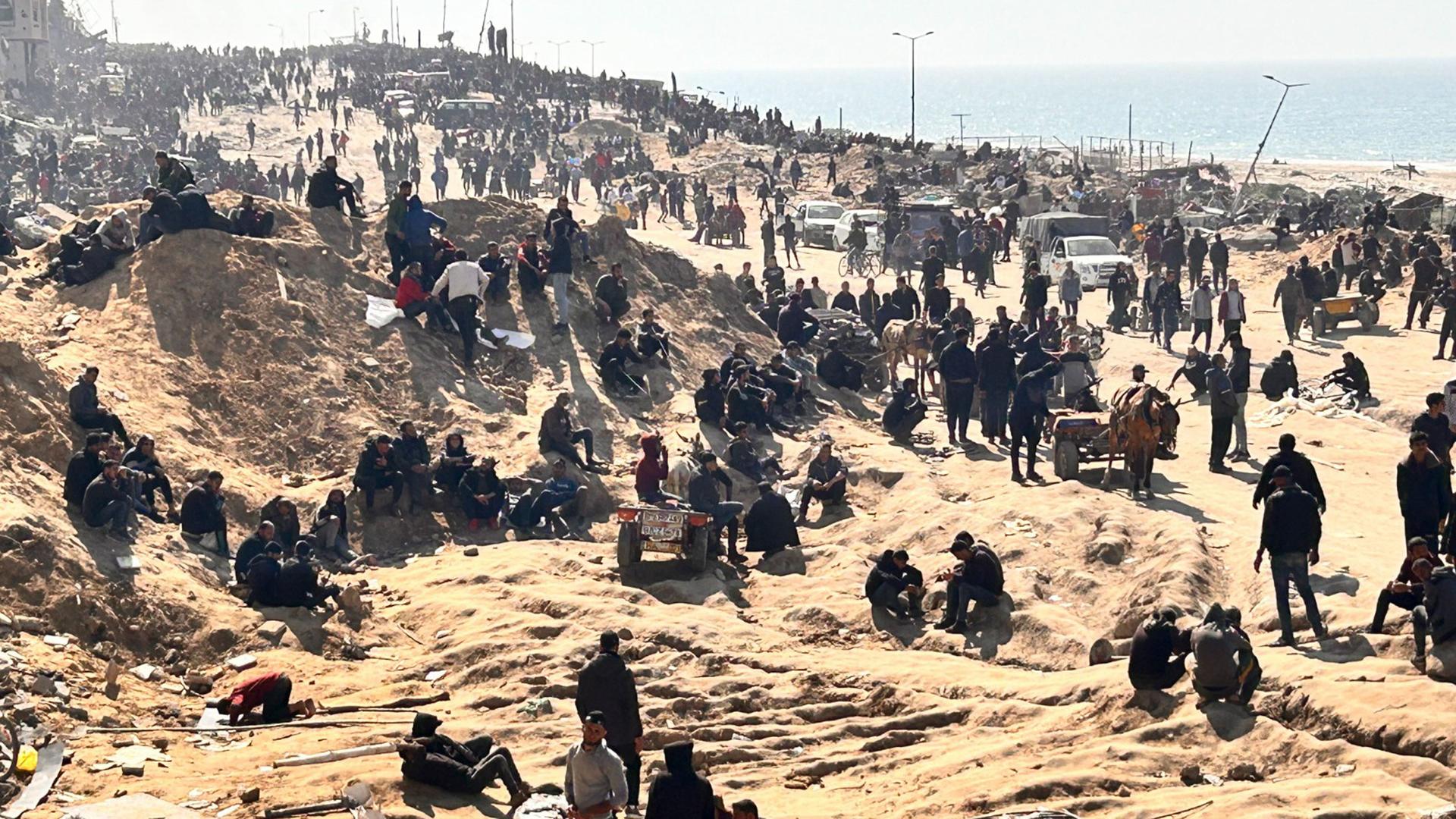‘Everyone is worried about starvation’: Aid worker discusses dire situation in Gaza
Mohammad Shtayyeh, the prime minister of the Palestinian Authority (PA) backed by the US, announced his resignation on Monday, saying new political arrangements are needed. Palestinian Authority President Mahmoud Abbas reportedly accepted the decision.

As the political moves play out, more than 2 million Palestinian civilians continue to face perilous conditions in the Gaza Strip. On Sunday, White House National Security Adviser Jake Sullivan said he hopes a ceasefire deal can be reached in the coming days that could see the release of remaining Israeli hostages in Gaza and a boost in humanitarian aid to Palestinians. Israeli leaders say they’re still moving ahead with plans to forcibly evacuate people from the southern Gaza city of Rafah and then send in Israeli forces to attack Hamas battalions there.
That day-to-day reality inside Gaza continues to alarm aid agencies. The United Nations says it’s no longer able to run humanitarian aid operations in the territory. In recent days, the number of relief trucks getting into Gaza has dwindled to a fraction of what it was before the war. Those vehicles have also been attacked by crowds of desperate and hungry people. The World’s host, Carolyn Beeler, spoke to Shaina Low of the Norwegian Refugee Council in Jerusalem, who says the situation in northern Gaza is especially bad.
Carolyn Beeler: Is any food aid making it into Gaza?
Shaina Low: I do believe that some food has gotten in. Overall, very, very little is getting up there. If there is stuff that’s available on the black market, the cost is prohibitive to most people who have been facing more than 140 days of this escalation. And what we’re hearing from our staff, a handful of whom have remained in northern Gaza and Gaza City, is that they’ve run out of flour, corn, oil and basically are running out of animal fodder — which is what they’ve had to resort to eating because they’re just simply is not food available in any significant quantity. There was a report last week from the World Food Program (WFP) that in northern Gaza, 15.6% of children aged two and under are exhibiting signs of acute malnutrition. This is more than 16 times the number found in Gaza prior to Oct. 7.
And what about in the south, where there are some 1.5 million Palestinians crowded into Rafah? What’s the food situation there?
There is still some food available. Some of it is getting in on these handful of aid trucks that are still managing to make it in, a trickle of the 200 trucks per day that Israel had committed itself to. But the food that’s available on the commercial market has had the cost massively inflated. So, 30 eggs, you used to be able to get them for nine shekels, which is a little bit over $2, two and a half dollars. That cost is now somewhere around 100 shekels, so closer to $30 for 30 eggs, which most people just simply can’t afford. The cost of other staples has just skyrocketed. And most people cannot afford to purchase food. They’re reliant on aid, and the trickle of aid is nowhere near enough.

UNRWA, the UN agency, had been coordinating and facilitating most, if not all, aid into the Gaza Strip. Why have they had to stop operations?
UNRWA was relying on Palestinian police officers, these are civil servants, many of whom are not affiliated or even members of the Fatah party, and they were relying on these police officers to accompany and escort aid as it was being brought in and brought to distribution points, particularly food aid. However, Israel was using the aid distributions as an opportunity to target police officers, typically right after the aid had been distributed or delivered. And so, there were a number of direct attacks on targeting Palestinian police in Gaza, which has now led the police to say that they are unwilling to support aid agencies in distributions. As a result, we’ve seen an increase in looting — not just of people going and taking food off of trucks — but actually violence towards truck drivers trying to bring aid into Gaza and to reach people in need.
There have been some airdrops of aid into different areas of Gaza. How effective is that as a method for getting folks in Gaza what they need?
Of course, any aid is needed and useful, but in terms of the impact that they’re able to make, it’s really just a drop in the ocean. The real issue is not about the need for airdrops, but it’s the need to be able to access all parts of Gaza and to guarantee the safety of humanitarians. There are means of getting aid into Gaza. The Kerem Shalom crossing was operational prior to Oct. 7. It’s been operational for the last couple of months, but it’s not operating anywhere near capacity.
So, what is behind the Kerem Shalom crossing not being fully operational?
Logistically, it is taking too long, and they have the capacity and the means to do screenings much faster than they are under these circumstances. And then on top of that, we’ve seen over the last few weeks Israeli civilians protesting and blocking the entry of aid. Israel has an obligation under international law, as the occupying power, to provide for the basic needs for the survival of the civilian population. Rather than stop these protests and get the aid in, they’re allowing a few dozen Israeli civilians to block aid from getting in. And there were a couple of days last week where fewer than 10 aid trucks were entering Gaza, and some days where no aid was entering through Kerem Shalom Crossing.

I know that you’re in touch with colleagues who are in Gaza. What are their fears about what happens if nothing changes here?
I mean, everyone is worried about starvation. Everyone is worried, of course, about disease. We’ve seen the spread of disease continue to grow. You have people who have been living either in very close quarters ans in collective shelters. You have people who are sleeping in tents or outside, exposed to the elements. We’ve already seen at least around 30,000 reported killed as a result of the hostilities. But we’re worried that the longer that this goes on, not only will the death toll rise as a direct result of hostilities, but also indirect deaths as a result of starvation and preventable or treatable illnesses that people just simply cannot overcome.
This interview has been lightly edited and condensed for clarity.
Sign up for our daily newsletter
